In this modern age where every brand, corporation and small business has a Twitter profile and Facebook page (sometimes in lieu of a website) which it leverages to engage one-to-one with customers, it was inevitable that someone would seize on the humble Internet meme for marketing purposes – what better bang for your marketing buck than to “go viral” from an intern’s tweet, right? And how better to keep your brand relevant to the cultural conversation than participating in meme culture?
Mostly, this sort of thing provides little more than karma for /r/FellowKids posters – embarrassing images and statements envisioned in corporate meetings by a team of people who usually don’t quite get it. But every now and then, brands and products become part of – or even the source of – genuine memes. Usually, this isn’t to their benefit (consider Tide Pods). But it can be.
Over the last half-a-year, there’s been a surge of crudely drawn images depicting a paunchy man with a misshapen head, dull eyes, balding hair and a patchy neckbeard. Sometimes this man wears sunglasses and occasionally he’s depicted in cargo shorts mowing his lawn. But always, always, this man is shown with at least one distinctive white can of Monster Ultra Energy Zero.
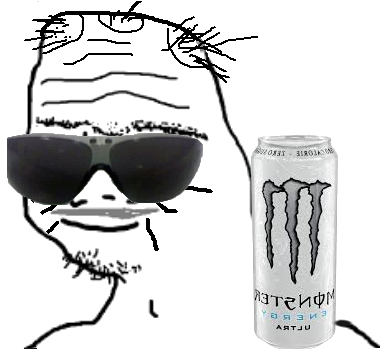
The classic boomer.
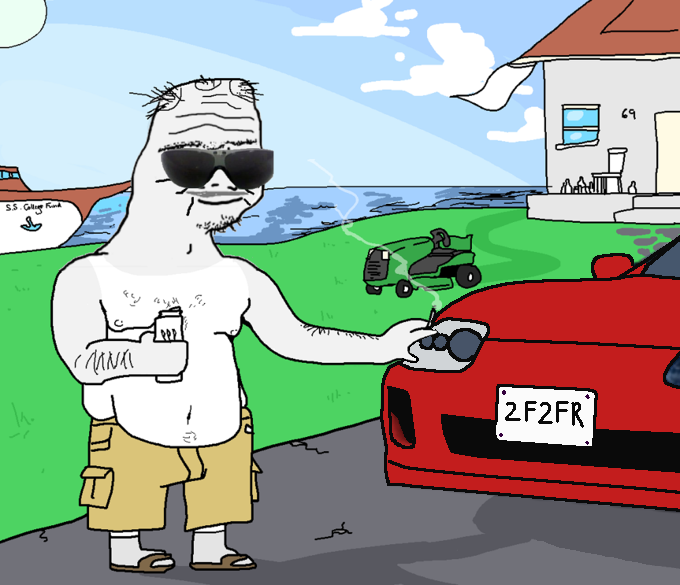
Boomer enjoying the outdoors.
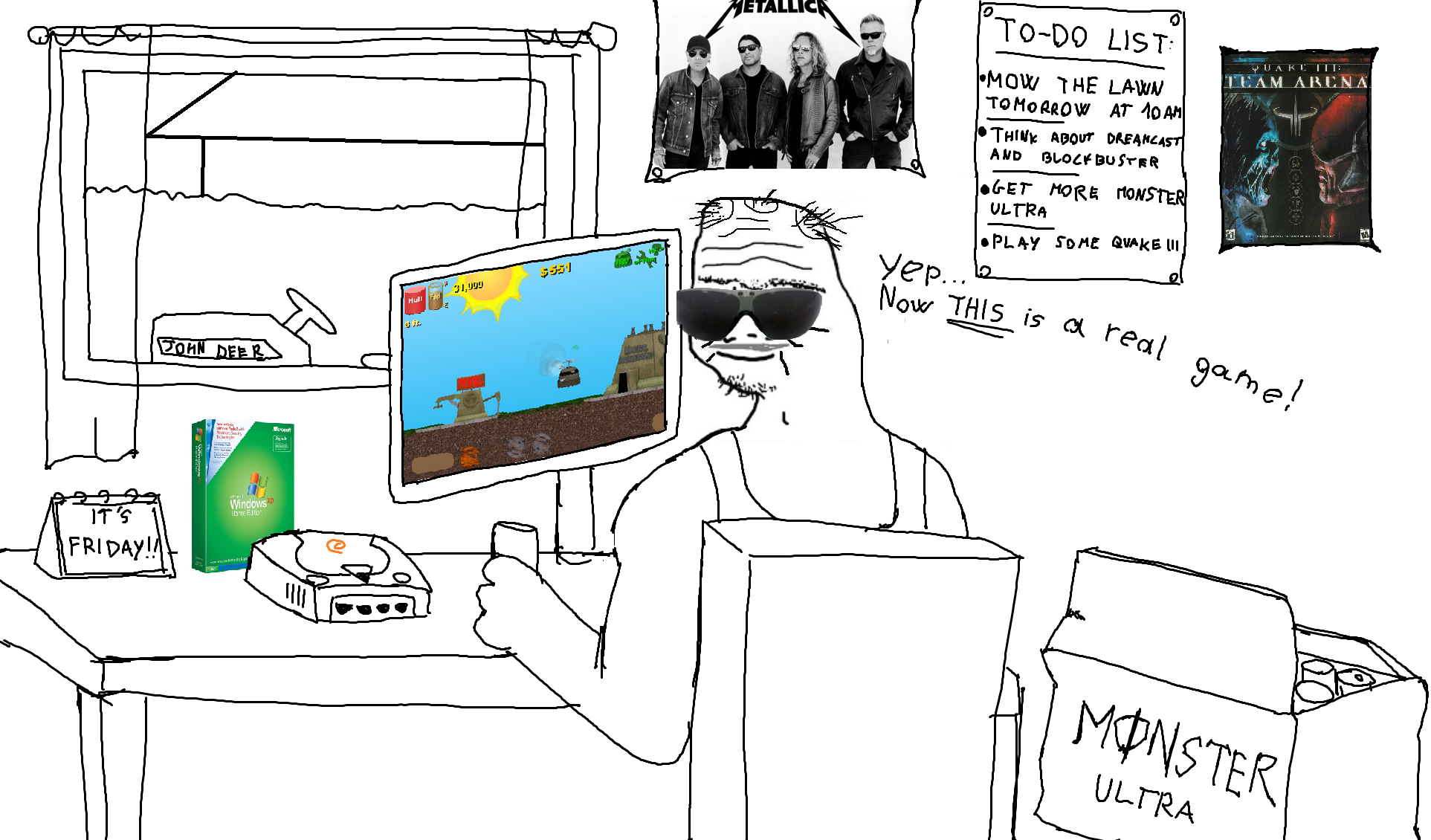
Boomer replaying old video games to recapture his recently departed youth.
This man is the 30 year old (baby-)boomer, a pastiche of older members of the millenial generation who are seen to be out of touch with their younger generational cohorts and in some ways old and nostalgic before their time, with mannerisms similar to retirement-age members of the babyboomer generation. The 30 year old Boomer cracks his can of Monster, takes a deep sip, and then says something like, “Ah, now Quake III (1999) was a good game. They don’t make them like that anymore.”
I’m not sure what the significance of the can of Monster is. To my mind, it makes the boomer seem like a recovering alcoholic, replacing his accustomed beer with a safer substitute because of his attachment to the can-cracking, sip-taking ritual. It’s a sugarless drink because the Boomer is old enough now to worry about their health, but can’t break their lifelong addiction to sweet softdrinks.
The can didn’t appear in the very earliest variations of the boomer meme, but seems to have been spliced in from a simpler meme about sipping, first seen on 4chan’s fitness board. It appears to have flopped initially but gained steam later on, before eventually merging with the 30-year-old boomer and becoming an unstoppable juggernaut.
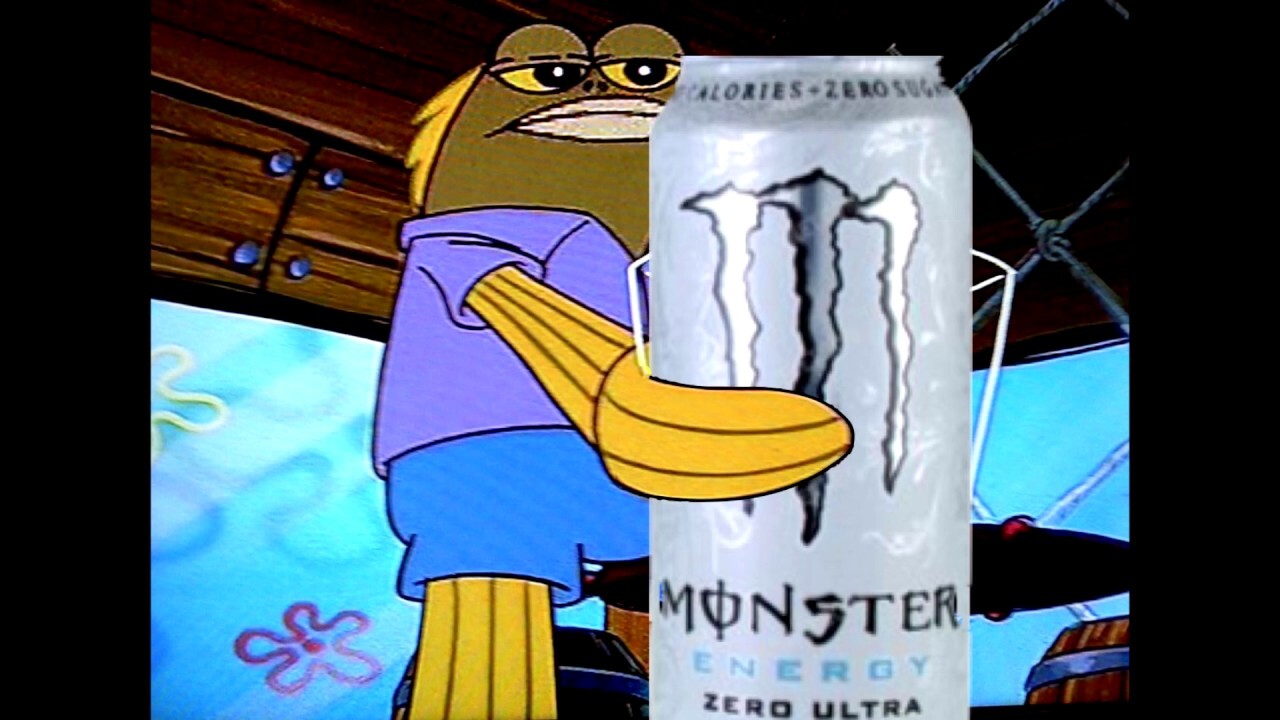
Ready for that sip.
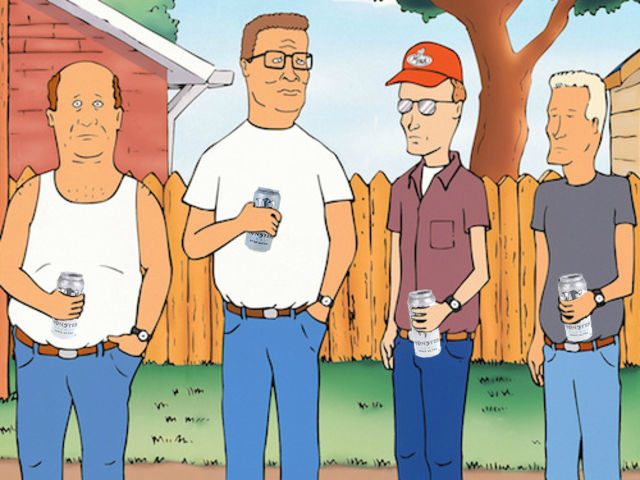
A sip with the boys.
Could it be that the original sipping meme was an attempt at advertising Monster energy drinks? It’s possible. Was the early fusion of sipping with the 30-year-old boomer a happy accident or the work of a master Monster meme marketer? How much of the meme’s continued spread and evolution is the work of product pushers? It’s impossible to say, and that’s what makes it such an effective meme marketing campaign… if it even is one.
The next question is whether it can be intentionally replicated. Meme culture thrives on novelty, so simply inserting your product into, say, pictures of grey-face NPCs, is unlikely to yield the same results. You’ll need to do something different. But perhaps, by harnessing the same blunt and meaningless juxtaposition devoid of the embarrassing try-hard aura of most viral marketing campaigns – devoid even of the certainty that it is a campaign – another company can get me to think about maybe trying their product… y’know, for the meme.
But then, I still can’t quite bring myself to actually buy a can of Monster.
 David Yates.
David Yates.